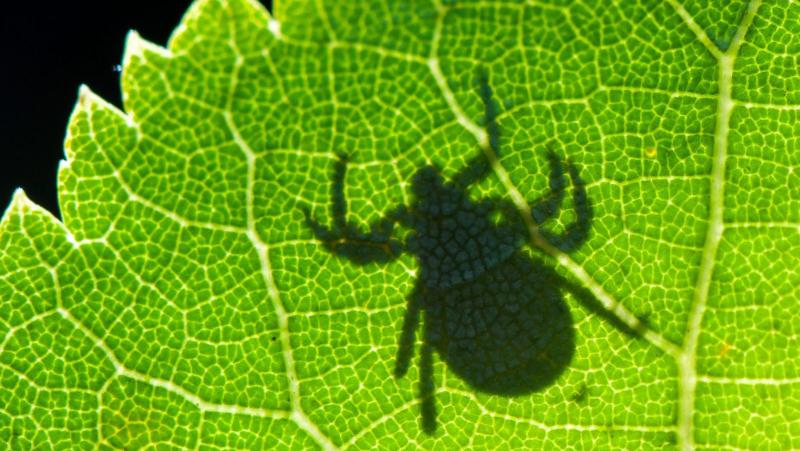It’s not just your imagination — ticks are out of control this year




Photo Credit: Getty Images
Not long ago, I went on a walk with some friends through a field near my house in upstate New York. When we stopped for a break, something moving on my pants caught my eye. There were about a dozen reddish-brown ticks crawling up my legs. I looked closer and found ticks tangled in my socks, latched on to the insides of my shoes, hanging by hooked legs to the backs of my knees. The big ones, American dog ticks, were easy to spot, but the little ones, blacklegged nymph ticks the size of poppy seeds, were harder to find. I was still pulling them off of me days later.
Northeasterners are used to coexisting with ticks, but this season has felt unusually intense. An unofficial survey of my friends unearthed some horrifying anecdotes. A landscape designer said she had been bitten by more ticks this year than ever before. The owner of a local wine shop pulled a tick out of his hair at the Atlanta airport that had somehow managed to accompany him on the plane ride south. One guy is living with the (possibly permanent) trauma of finding a tick attached to his nipple.
The anecdotal evidence for a busy tick year is corroborated by data, Richard Ostfeld, a disease ecologist at the Cary Institute of Ecosystem Studies in Millbrook, New York, said. It’s still too early in the season to say exactly how this year stacks up compared to previous years, but early returns indicate that there has been an explosion of ticks this spring. “All these people complaining of a horrendous year,” Ostfeld said, “they’re actually right.”
The tick boom isn’t exclusive to the Northeast. Tom Mather, an entomologist at the University of Rhode Island and director of a tick awareness program called TickEncounter, said he’s seen an uptick in reports of American dog tick sightings and bites around the country this year. TickEncounter, which crowdsources tick data from people all over the U.S., shows American dog tick submissions were up 30 percent in April compared to March, about 10 or 15 percent higher than usual. “They’re having a good year so far,” Mather told Grist.
Tags
Who is online
402 visitors

The tick boom isn’t exclusive to the Northeast. Tom Mather, an entomologist at the University of Rhode Island and director of a tick awareness program called TickEncounter, said he’s seen an uptick in reports of American dog tick sightings and bites around the country this year. TickEncounter, which crowdsources tick data from people all over the U.S., shows American dog tick submissions were up 30 percent in April compared to March, about 10 or 15 percent higher than usual. “They’re having a good year so far,” Mather told Grist.
It's not just you:
It would be nice if cicadas ate ticks. I guess the eternal creator just isn’t that efficient ... or nice.
Non-believers should be perfectly content in letting nature take its course, wherever it leads to, and no matter the consequences.
Believers are oddly content with being fed a crock of shit while being told it’s milk and honey.
I am always amused by the ravings of folks who don't believe in God yet expect things from Him.
Classic cases of insanity.
I don’t expect anything from something that doesn’t exist. I just don’t understand why the Bible doesn’t just say Don’t expect anything because nothing is what you’re going to get. Sure would save some time and aggravation.
And who exactly do you think it would save time for?
If you knew anything about faith, surely you wouldn't think it would save THEM time.
And non-believers in God wouldn't believe it to start with.
And who is aggravated?
Non-believers?
Who cares?
Who cares?
You, apparently.
YOU brought it up.
Why do YOU care what God has or has not done?
That is completely senseless.
I know right? Honestly, why even create ticks and mosquitoes in the first place? Definitely a dick move.
Do ticks talk? I keep seeing the words TikTok these days.
No Ticks don't actually Talk..they only Tok!
Unless they’re having coffee - then it’s cawfee tawk.
Ticks, at least in my area, have been getting steadily worse each year. All of the potential factors discussed in the article, but I didn't see anything on pesticides. Pesticide use has been on the decline. Thinking out loud here, but maybe we are used to lower numbers partly attributable wider use of pesticides in the past.
Deer populations are discussed. Not mentioned are feral pigs. Both are exploding in numbers where I am. Lower use of pesticides, combined with larger populations of critters...target rich environment for the ticks. I hate ticks.